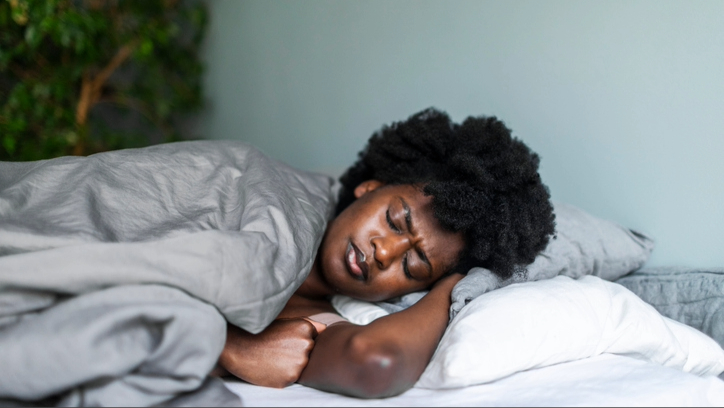What is a plush mattress and is it right for your sleep needs?
Our complete guide to these super-soft mattresses
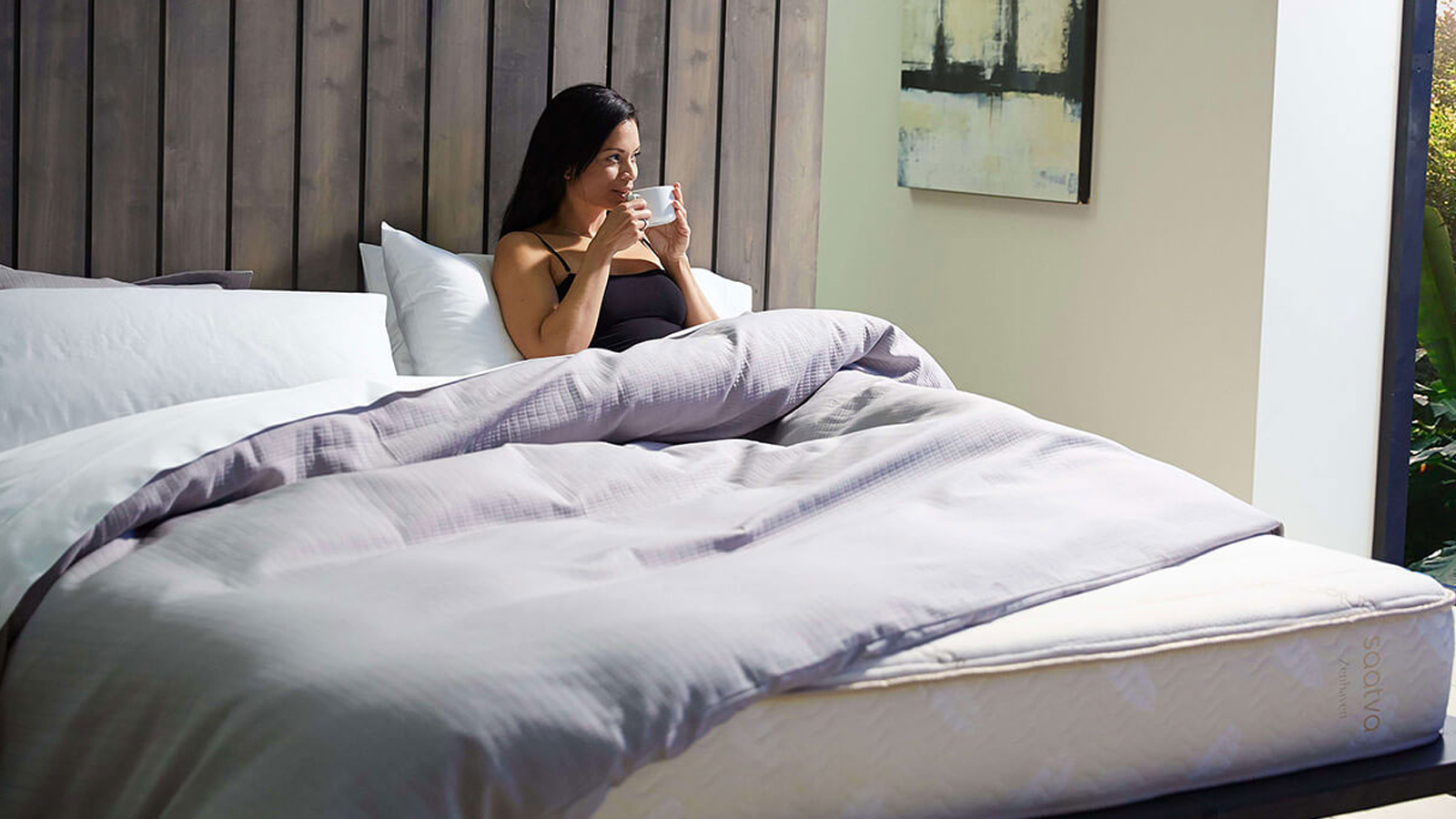
If you’re looking to get snug at bedtime, a plush mattress could be exactly what you need. But what is a plush mattress and who are they for? Plush mattresses are exactly as they sound – soft, cozy and pillowy – making them ideal if you need extra cushioning around your pressure points because you are lighter in weight or sleep mainly on your side.
Many of the best mattresses have a medium-firm feel, as most people need a firmer mattress to keep them supported as they sleep. This means there is slightly less choice when it comes to plush mattresses, but there are still plenty of great options if you decide this is the bed type for you. Below, we’ll discover more about plush mattresses including what they are made of and how much they cost.
- Read more: What is an orthopedic mattress?
What is a plush mattress?
A plush mattress is a mattress that, as the name suggests, has a softer feel and firmness. It's usually made with softer foams, especially in the top layers, and can also include stitched-on pillow-tops to offer plenty of snugness.
We'd consider a plush mattress as one that has a firmness rating of 3 or less out of 10, with medium-plush models coming in at a 4 (compared to a medium level 5-6, medium-firm a 7, and firm mattresses at 8 and above). Primarily, this mattress type is designed to provide extra cushioning for the sleeper, but that's not all – here are the five main benefits to sleeping on a plush mattress...
- Provides extra cushioning for pressure points
- Offers more comfort if you are lighter in weight
- Has a cozier feel if you suffer from hip pain or sore muscles
- Is more snug for solo sleepers
- Helps align the spine if you are a side sleeper
Unsure if a plush mattress is right for you? Fortunately, the top mattress brands include a mattress trial of at least 30 days so you'll be able to test it for yourself at home.
How much do plush mattresses cost?
You will find plush mattresses at a range of prices to buy online, so how much you spend is entirely down to your budget.
In the US, top mattress brand Saatva offers its Saatva Zenhaven mattress in a ‘luxury plush’ firmness. This organic mattress is made with natural latex, organic cotton, and wool — all high-quality materials. Thus, a queen retails for $2,770, so it's certainly more of a splurge buy. However, you'll be able to save money in frequent Saatva mattress sales, and you'll also avail of a lifetime warranty and a 365-night sleep trial.
For a lower mid-range option, there's the Helix Sunset mattress, which has super soft top layers plus an optional pillow top for top-notch pressure point cushioning for side sleepers. Meanwhile, stomach and back sleepers who want a plush mattress can opt for the Helix Moonlight mattress, which focuses more on body contouring. Both of these plush options retail for $1,199 and are often discounted in Helix mattress sales.
Among cheap mattresses, the Linenspa 12-Inch Hybrid Memory Foam mattress has a two-inch layer of soft foam to cradle your body in any position. A queen size is normally on sale for $500, and retails for around $530 otherwise. As a hybrid mattress, it'll sleep cooler than a full-foam bed, too.
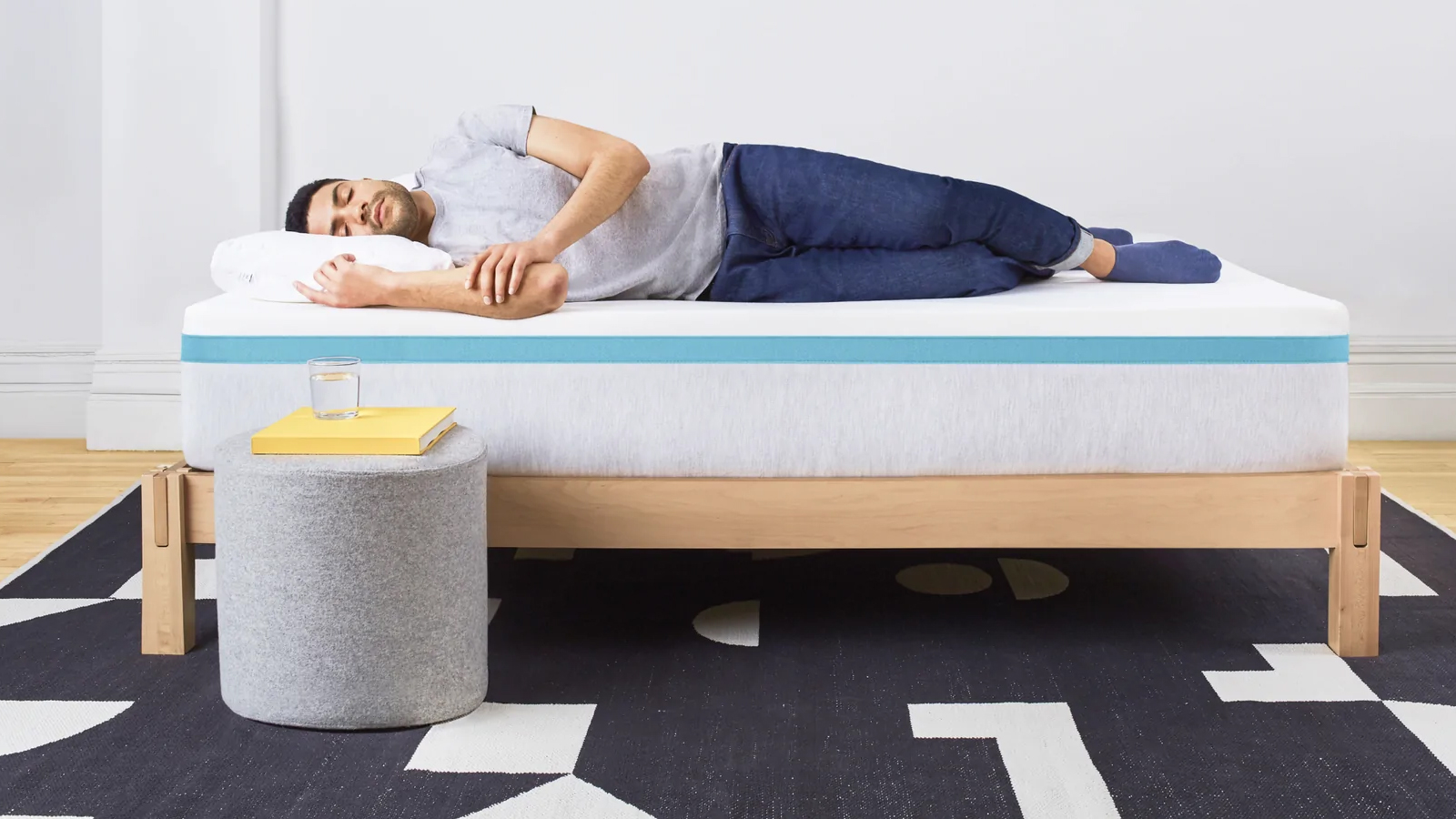
Meanwhile, in the UK, the Tempur-Pedic TempurONE mattress comes in a soft feel if you like to sink into your bed. The RRP is £1,449 for a double, and you also get a 10-year guarantee and a 100-night trial, too.
For a slightly cheaper bed, Flaxby also has options for a softer mattress with its Flaxby Nature's Finest 4450 Pillow Top mattress coming in at £1,399 for a double. It's handmade in the UK with natural cotton, wool and hemp fillings. Or you can opt for a more luxurious feel with the Simba Hybrid Luxe mattress, which features 10 layers of plush, cooling comfort. It retails for £2,149 in a double, but you'll find it discounted in frequent Simba mattress sales.
Ready to upgrade your bed to a plush mattress? Check out the noteworthy offers from current mattress sales below...
What are plush mattresses made of?
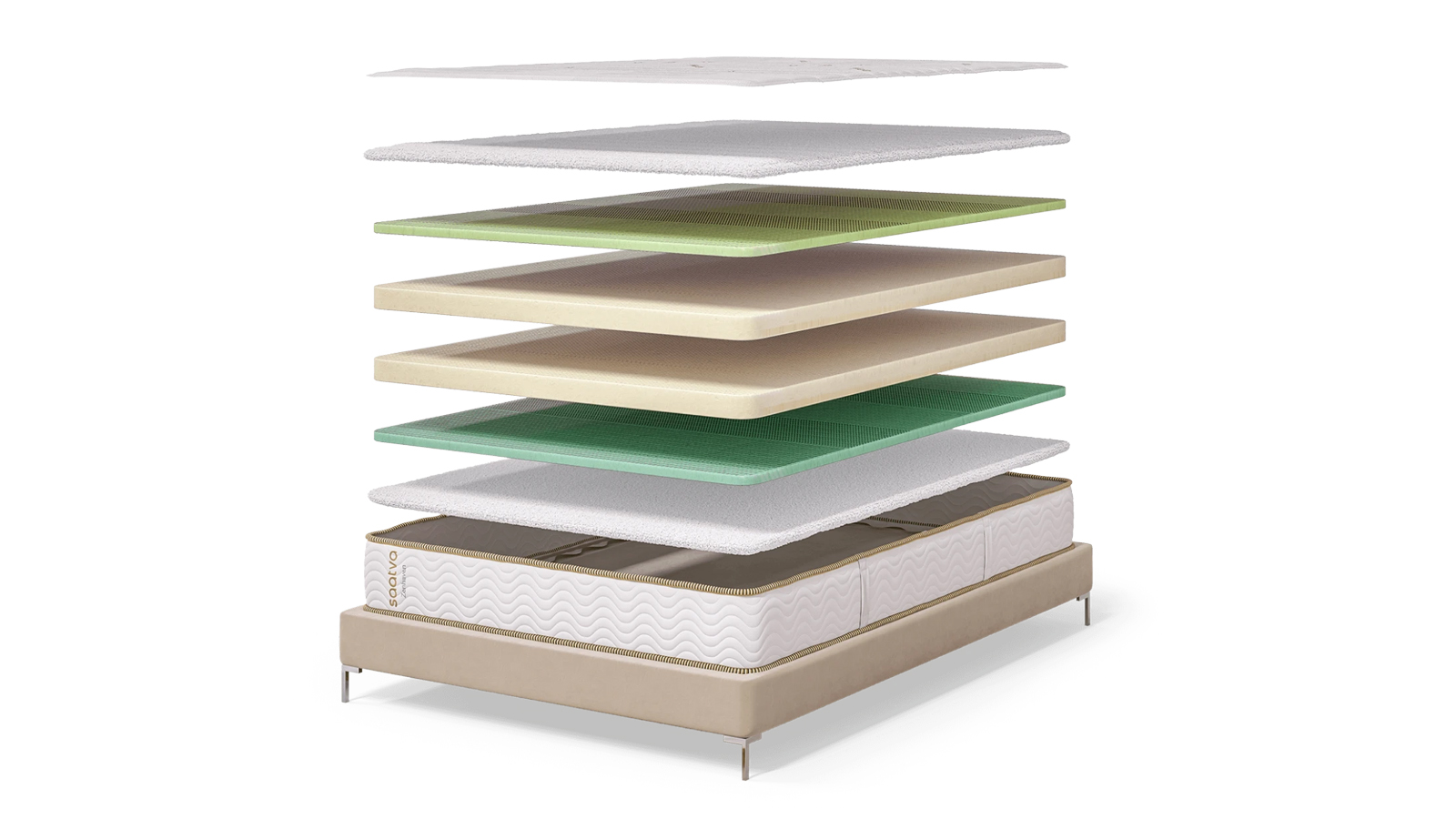
Like any other mattress, plush mattresses consist of layers that work together to create a desired effect – in this case, a soft feel that's also supportive.
In order to get that softer feel, plush mattresses contain a layer (or several) of soft comfort foam for pressure relief and cushioned contouring. Following that is a layer of transitional foam that's denser to offer support.
At the bottom is a durable base layer that's extra dense to provide stability to the mattress. If you opt for a hybrid, there will also be a layer of individually-wrapped springs situated above the base layer that'll add contouring, support, and airflow.
Some plush mattresses have a stitched-on pillow-top or quilted cover to add comfort. This provides a softer pillowy layer and is particularly good for side sleepers and lighter individuals, as they are more cushioning for bony areas of the body such as the shoulders. Pillow tops can be filled with memory foam, latex, polyester, or wool.
You can also add a mattress topper to an existing bed to soften it – particularly if your existing mattress is otherwise in good shape and you don't want to replace it outright. This is usually a better solution than a pillow-top mattress as the pillow layer is usually permanently attached to the mattress, and more prone to flattening and wear and tear.
Are plush mattresses comfortable to sleep on?
When it comes to comfort, it’s important to note that plush mattresses aren’t for everybody. If you require firmer support because of back pain, or heavier body weight, then you should look for the best mattresses for back pain, which are firm or medium-firm.
If you're lighter in weight and tend to sleep on your side, then a plush mattress could be the ideal choice for you, as the layers are specifically designed to cushion the joints and pressure points along the shoulders and hips (bonier areas of your body), making it easier to get comfortable as you sleep.
Because plush mattresses are softer, the body will naturally sink in more to the softer top layers. If you sleep hot, then this might not be the most comfortable choice for you, although many plush mattresses, such as the Saatva Zenhaven Natural Latex mattress or Simba Hybrid Luxe mattress, come with a top layer of organic cotton or bamboo-infused wool for more breathability. If your mattress is a hybrid, the coils also serve as a way to promote better airflow.
If you require plushness as well as support, then adding a plush mattress topper to a firmer mattress is a good way to achieve the best of both worlds.
How long do plush mattresses last?
A good-quality mattress from brands such as Tempur-Pedic, Simba, or Saatva use top-quality materials with expert manufacturing, and, as such, should last you a good 7 to 10 years. Making sure you look after your mattress by rotating it, and cleaning up any spillages immediately will help keep it lasting longer, too. You can also add a mattress protector to keep the bed feeling fresh.
If you want an idea of how long your plush mattress will last, then look at the length of its warranty, as this is a good indicator of the manufacturer’s trust in its product. Our guide answering how long does a mattress last is packed with information to help you decide which type of mattress should last you the longest.
And, don’t forget – many of the top bed brands have mattress trials, so you can try out the bed first risk-free to see if a plush mattress is right for you and your sleep.
Do plush mattresses need a box spring?
A box spring is a mattress base made of wood or metal that contains a secure set of springs in the middle. It can come in handy If you need extra height or bounce, but it's often bulky, not as attractive as a bed frame, and heavy to move. There's also the potential that your mattress warranty will be voided if you use your mattress with a box spring – most modern mattresses don't need one.
As long as your plush mattress is on a stable surface you can use either a box spring (if allowed) or a standard bed frame. With a bed frame, as long as the slats are spaced no wider than 2.5 to 2.75 inches apart under the mattress, this will ensure the plush mattress is doing its job to support your spine, and it will also help the mattress last longer without dipping.
Who should buy a plush mattress?
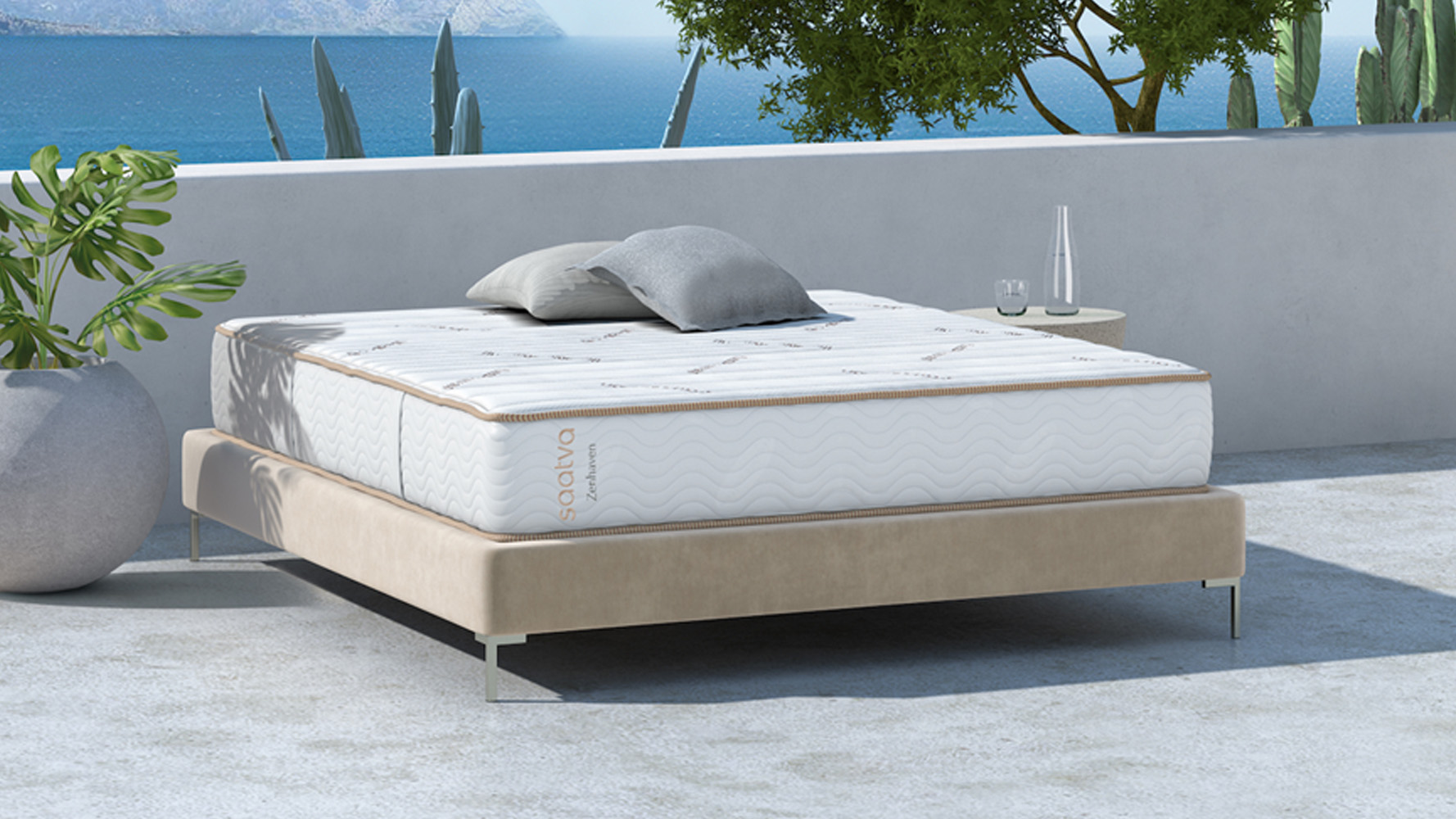
If you find it difficult to nod off to sleep, or wake in the night because you cannot get comfortable, then it’s likely your mattress is to blame. While many of the best beds come in a standard medium-firmness, this might not suit everybody, so it could be time to switch to something slightly softer.
Here are the main reasons why you might want to invest in a plush mattress:
- You sleep mainly on your side
- You are petite/lighter in weight
- You need more cushioning for your pressure points
- You prefer a cozier feeling mattress
Remember, if you are not sure if a mattress is for you, then you can always take advantage of the risk-free sleep trial – sleeping on the mattress for at least 30 days will give you a good indication if a mattress is the right firmness for you.
Who shouldn’t buy a plush mattress?
As cozy and inviting as they sound, plush mattresses aren’t for everybody and can even leave you feeling sore and in pain when you wake up. Here are some instances in which a plush bed might not be the best bed for you:
- You have a heavier body weight
- You have back pain and need firmer support
- You co-sleep with a partner
- You prefer not to sink into the mattress
As mentioned, if you suffer from any sort of joint pain or back pain, you should check with your physical therapist first if you are thinking about getting a plush mattress; an orthopedic mattress may be your best bet instead.
Also, if you tend to sleep hot, make sure you choose a plush mattress with cooling features such as a breathable or sweat-wicking cover, as the sinking-in feeling associated with a softer mattress isn’t comfortable for all sleepers. You will find some plusher options among the best cooling mattresses.
What is a plush mattress: Summary
A plush mattress is a softer bed that's designed to be more cushioning for side sleepers, petite sleepers and anybody after a little more coziness. It's made with softer foams and has a softer top layer that'll allow your body to sink in more.
Top brands for plush mattresses include Tempur-Pedic, Saatva, Helix, and Simba – among other manufacturers. You can expect to spend as little as $500 / £500 on the lower-end for a queen / double, although there are plenty of mid-range options from around $1,200 / £1,200. However, frequent mattress sales are great ways to save on even high-end plush mattresses that otherwise retail from $2,000 / £2,000.
Most top online bed brands also offer easy delivery and returns, as well as lengthy warranties and sleep trials, so if you want to take the plunge with a plush mattress then you can try one out at home first, risk-free.
Ensure your plush mattress is just as supportive by placing it on the right type of mattress foundation. This will not only contribute to more restful sleep but also help extend the life of your mattress.
Ready to bring home a plush mattress? Check out today's best deals below...
Read more:
- Pair your new plush mattress with one of the best pillows
- Download the best sleep apps to your smartphone
- Learn how to sleep better at night naturally
Sign up to get the BEST of Tom's Guide direct to your inbox.
Get instant access to breaking news, the hottest reviews, great deals and helpful tips.

Claire is a fully qualified journalist and Certified Sleep Science Coach with over 16 years’ product review experience. Claire is responsible for all mattress and sleep content published on Tom’s Guide, including our Best Mattress of 2025 buying guide. She is our expert on Saatva, DreamCloud, Nectar and Tempur-Pedic mattresses, and is also our in-house hybrid mattress specialist. Claire is certified to advise people on how to choose a mattress that best suits their sleep, body and budget, as well as helping them to create a nighttime routine and bedroom environment that promote good sleep. As Senior Sleep and Mattress Editor, Claire takes the lead on developing and overseeing rigorous testing procedures for our mattress reviews, both at home and in our fully equipped Sleep Lab. Claire leads a team of experienced sleep and mattress specialists who report on and test a wide range of mattress and sleep products, and she also writes about all things related to sleep, and has interviewed a wealth of experts including mattress designers and buyers, neuroscientists, and doctors of sleep medicine.
